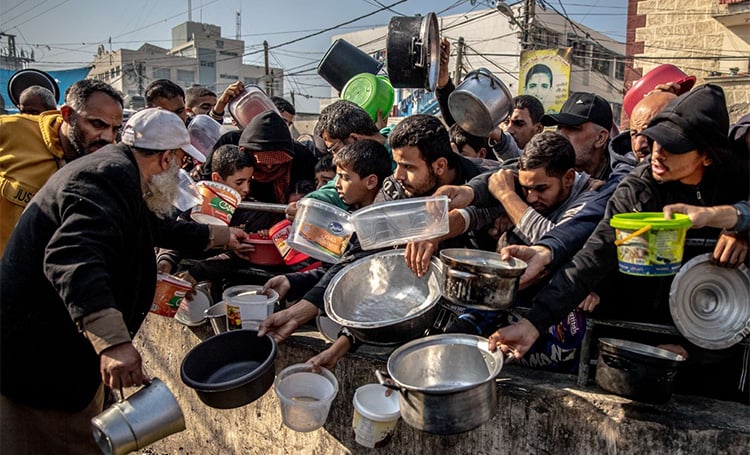
The United Nations chief warned Tuesday that climate chaos and food crises are increasing threats to global peace, telling a high-level U.N. meeting that climate disasters imperil food production and “empty bellies fuel unrest.”
Secretary-General Antonio Guterres urged the U.N. Security Council to address the impact of food shortages and rising temperatures on international peace and security — a view echoed by many countries but not Russia.
“Climate and conflict are two leading drivers of (our) global food crisis,” the secretary-general said. “ Where wars rage, hunger reigns – whether due to displacement of people, destruction of agriculture, damage to infrastructure, or deliberate policies of denial.”
“Meanwhile, climate chaos is imperilling food production the world over,” he said.
Guterres said the world is teeming with examples of “the devastating relationship between hunger and conflict.”
In war-torn Gaza, he said, no one has enough to eat and the tiny strip accounts for 80% of the 700,000 hungriest people in the world. After more than a decade of war in Syria, he said, 13 million Syrians go to bed hungry every night. And in Myanmar, prospects of ending hunger have gone into reverse because of conflict and instability, he said.
Simon Stiell, the United Nations climate chief, told the council that climate change is contributing to food insecurity and conflict.
He said one in 10 people on the planet today already suffers from chronic hunger and if climate change accelerates, “it will become worse. ”
“Rapid, sustained action to cut greenhouse gas emissions and to increase resilience is needed now to help stop both from spiralling out of control,” Stiell said.
The executive secretary of the U.N. Framework Convention on Climate Change said the Security Council “must acknowledge more can be done rather than hoping the problem will go away — which it won’t.”
The U.N.’s most powerful body should be requesting regular updates on climate security risks, he said.
Beth Bechdol, deputy director of the U.N. Food and Agriculture Organization, said scientific evidence is clear: “Climate change is compromising food security, and its impacts are a growing threat to international peace and security.”
She reiterated a longtime FAO warning: “There is no food security without peace and no peace without food security.”
Bechdol said 258 million people in 58 countries are facing high levels of food insecurity and over two-thirds of them — 174 million people — are at high hunger levels because of climate and conflict.
“While there may not be a direct causality between the two, there is clear evidence that climate change increases risks and drivers of conflict and instability, such as disputes over land and water,” Bechdol said.
“And conflict contributes to climate change vulnerability, especially for people who are forced to leave their homes and migrate.”
